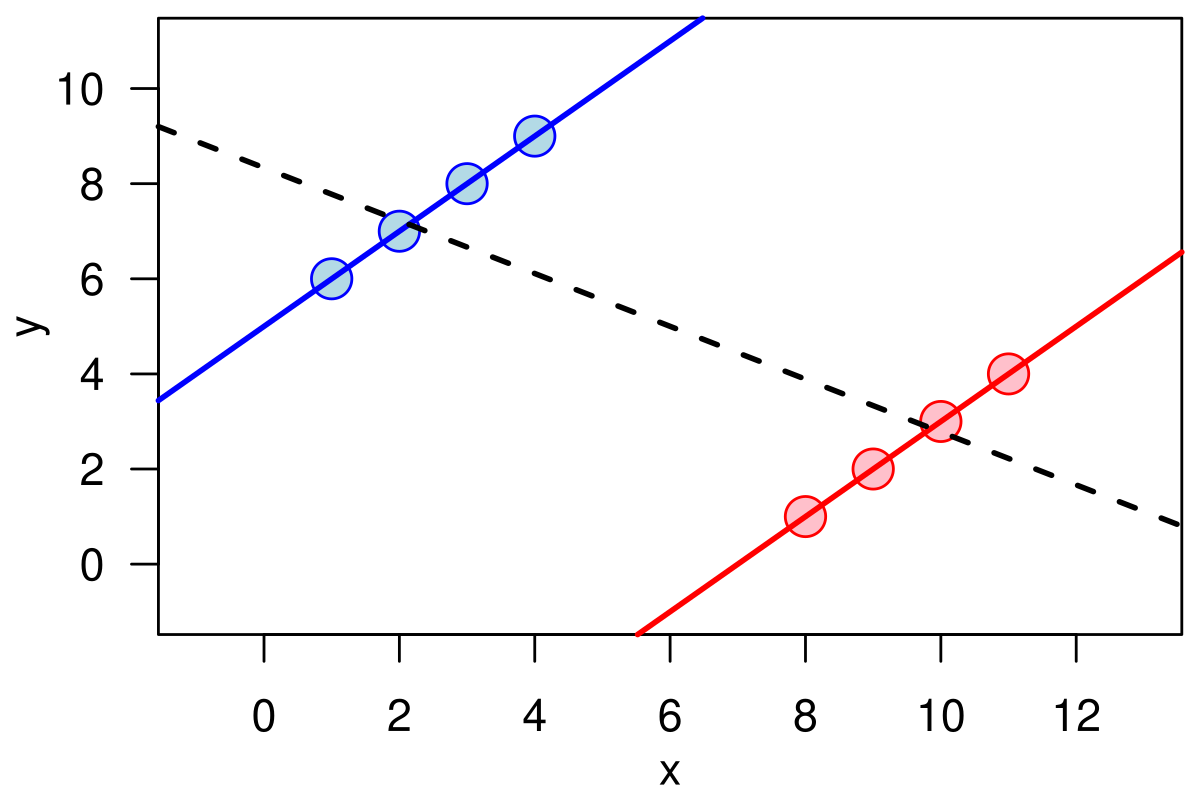You are using an out of date browser. It may not display this or other websites correctly.
You should upgrade or use an alternative browser.
You should upgrade or use an alternative browser.
The Communication Cube
- Thread starter Jourdy288
- Start date
JDTAY
Half Pepperoni, All Cheese
Just wondering, given any two positive numbers in existence, what is their average ratio? I made a program that randomly generates ratios, and after using it a while, I think the answer is 7, but I have no idea why the answer is 7. Math sux.
Djoga'Ro
moonstruck
- Joined
- Apr 3, 2016
- Messages
- 2,631
Or you mean the average x/y with x >= y? Here's a lua script, that sums them up and prints the average for x up to 1, 2, 3 ...
Code:
#!/usr/bin/lua
if #arg > 0 then
nolimit = false
upto = tonumber(arg[1])
else
nolimit = true
end
sum = 0.0
num = 1
cnt = 0
lst = 0.0
while nolimit or num <= upto do
for i = 1, num do
sum = sum + ( num / i )
cnt = cnt + 1
end
toprint = sum / cnt
print("up to " .. num .. ": " .. toprint .. ", diff to predecessor: " .. ( toprint - lst ) )
lst = toprint
num = num + 1
endWith x becoming greater it will lose it's value though, since I didn't account the fact that x/1 will become greater and greater, while x/(x-1) will need more and more precision, and all the ratios are just added to one number variable.
When you call the script with a number as argument, it will go as long as x <= arg, else it will just go on(, until you kill the process or something or presumably until sum grows beyond the domain of the internally used floating point number type).
Last edited:
Let's peer review your method. Don't post the code, just your method. Then we evaluate, say, a perfect random number generator (just download a big list of numbers)Just wondering, given any two positive numbers in existence, what is their average ratio? I made a program that randomly generates ratios, and after using it a while, I think the answer is 7, but I have no idea why the answer is 7. Math sux.

Simpson's paradox - Wikipedia
 en.wikipedia.org
en.wikipedia.org
If I understand the question I think it's just infinite. I may be wrong, it's long since I did exercises like that.Just wondering, given any two positive numbers in existence, what is their average ratio? I made a program that randomly generates ratios, and after using it a while, I think the answer is 7, but I have no idea why the answer is 7. Math sux.
I don't know what use a program would be. You are going to leave out most numbers, the biggest. And you may not notice because that average grows quite slowly, like half the harmonic series, which is slightly over ln.
That's if you mean just the average of all divisions of positive integers. If you mean the average of all rationals (without repeating the fractions that give the same quotient) that's another kettle of fish. One that has people resonating with the celestial espheres...
Why can't one upload pdfs ? or latex files ?

levi
Still fresh, damnit!
Yes, I think it's anywhere from just above 0 to infinity, so the average is 1/2*inifinity, if that makes any kind of sense. I think the only way you could get an average of 7 out of it would be if you were limiting your random numbers to something like 100.
levi
Still fresh, damnit!
I don't understand that graph, if your first random number is less than 10 and your second is close to a million, the ratio would be 100 thousand and up, but your Y axis only goes up to 10.
But how large are the 2x random integers you take for those x divisions ? between 1 and 200000 or so?x is the number of ratios to include. y is the average.
Null
Snug
The Bitsy game creation tool now has music/sound support. Now I just have to think of something to do with my new found powers. 

 github.com
github.com
bitsy/VERSION_NOTES.txt at main · le-doux/bitsy
make tiny games, worlds, and stories. Contribute to le-doux/bitsy development by creating an account on GitHub.
I just got a Comment under my last Video from someone who said he is from a local gouverment media bureau (Landes Medien Anstalt) because I used Roms in this Video which where „illegal“ I should make another video where I excuse this criminal to avoid some consequences ..
I doubt it’s a official gouverment guy as the Chanel was made a few days ago, and they wouldnd work on Sunnday, so I just reported it as fake , but I was a bit scared when I red it as I don’t know completely fake ..
So I would go away from Pyra Content whit Roms for now, at least not that much Roms anymore
If there is a new Emulator, I will show them, but maybe it’s now a bit dangerous in Germany to post content whit Roms..
I doubt it’s a official gouverment guy as the Chanel was made a few days ago, and they wouldnd work on Sunnday, so I just reported it as fake , but I was a bit scared when I red it as I don’t know completely fake ..
So I would go away from Pyra Content whit Roms for now, at least not that much Roms anymore
If there is a new Emulator, I will show them, but maybe it’s now a bit dangerous in Germany to post content whit Roms..
Null
Snug
but maybe it’s now a bit dangerous in Germany to post content whit Roms..
Why? Because you'll get bothered by shortbus riders?
Someone on the German Nintendo Board said it was Fake, as the „Landesmedienanstallt“ ditnt investigate Copyright Stuff ..
I think I should use a custom YouTube Rom Folder the next time, and shouldn’t show the whole Romfolder expecally when it was called „GBA Rompack 128 „
I think I should use a custom YouTube Rom Folder the next time, and shouldn’t show the whole Romfolder expecally when it was called „GBA Rompack 128 „
levi
Still fresh, damnit!
Yes, I'm not sure what that named agency actually does, but copyright control is not a concern of the police, it's enriely a civil offense. It's not a bad idea to make it less clear your using rompacks on youtube, and I'don't know how the cibil court works in Germany, but I'd still expect nothing to happen before you get served with a writ.
Well, the agency would make all of the Media Stuff, so if you harrass someone in the Internet or something else, or care about who is allowed to have a TV/Radio Broadcast Licence..
Some big Twitch Streamers got some trouble whit them because they was told to got a Broadcast Licence for the Twitch Chanell,
They dont have anything to to whit "Copyright", so its fake, who wouldnd care about the Rompacks of a Tiny Youtuber on a Niche Handheld?
Some big Twitch Streamers got some trouble whit them because they was told to got a Broadcast Licence for the Twitch Chanell,
They dont have anything to to whit "Copyright", so its fake, who wouldnd care about the Rompacks of a Tiny Youtuber on a Niche Handheld?
ElPoco
Hardcore Member
Besides even downloading a rompack might not even be an offense. I don't know about German law, but in French law the only copyright offenses you could be charged with are:
- Sharing copyrighted media without permission
- Circumventing DRM (or telling people how to do it)
Making a copy of DRM-less copyrighted data (even if you don't own it) for private usage is technically legal and even a right.
You might still get sued and there's a chance that the judge will interpret the law in a way that leads to a guilty verdict, but theoretically you shouldn't. However, in the case of a Youtube videos some people might argue that you're encouraging the sharing of copyrighted material, which is an offense.
- Sharing copyrighted media without permission
- Circumventing DRM (or telling people how to do it)
Making a copy of DRM-less copyrighted data (even if you don't own it) for private usage is technically legal and even a right.
You might still get sued and there's a chance that the judge will interpret the law in a way that leads to a guilty verdict, but theoretically you shouldn't. However, in the case of a Youtube videos some people might argue that you're encouraging the sharing of copyrighted material, which is an offense.
And even if this were the real acount of this agency: They would send me a Paper Invoice for the penality, just like when i would drive too fast, and not wanting from me to make a Excuse Video where i swear its want get made again ...
But i have now some ideas for the Analogue Pocket: Some sort of a Random Gameplay Session where i put my Games in 2 Bags, and what i pull out, gets played maybe 2 Minutes, one Video for GBA, and the other for GB/GBC..
Sadly im in Q4 2022, so maybe February 2023..
But i have now some ideas for the Analogue Pocket: Some sort of a Random Gameplay Session where i put my Games in 2 Bags, and what i pull out, gets played maybe 2 Minutes, one Video for GBA, and the other for GB/GBC..
Sadly im in Q4 2022, so maybe February 2023..
Similar threads
- Replies
- 71
- Views
- 35K
- Replies
- 104
- Views
- 29K
- Replies
- 72
- Views
- 19K


